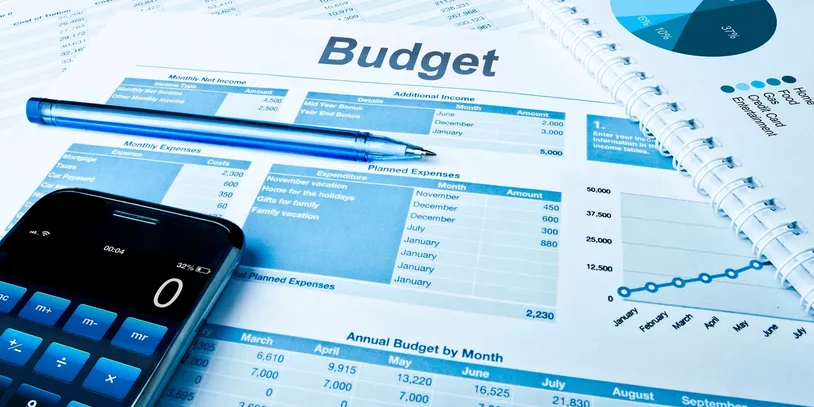The first step to financial freedom is understanding your current financial situation. Start by assessing your income, expenses, assets, and debts. Understanding your income and expenses will give you a clear picture of your financial situation. Track all of your expenses, from monthly bills to discretionary spending, and determine where you can cut back. Understanding your financial situation will help you take the necessary steps to make informed decisions about how to achieve financial independence.
Set Specific Financial Goals
Setting clear, measurable, and realistic financial goals is essential to achieving financial freedom. These goals will give you a roadmap to follow and keep you focused on what really matters. Start by defining your short-term and long-term goals. Short-term goals might include paying off credit card debt or saving for an emergency fund. Long-term goals might include saving for retirement or buying a home. Break big goals into smaller, manageable steps and track your progress regularly. The more specific and achievable your goals are, the more motivated you’ll be to stick to them.
Create a budget and stick to it
Creating a budget is one of the most effective ways to stay on top of your finances. A well-structured budget will help you stay within your means and prioritize important financial goals like saving, investing, and paying off debt. Start by categorizing your income and expenses. Fixed expenses like rent and utilities should be paid first. Some of your income can be spent on savings, investing, and leisure activities. Review your budget regularly to make sure you’re sticking to it and make adjustments as needed. A budget can help you avoid overspending and focus on what matters most on your journey to financial freedom.
Build an emergency fund
A cornerstone of financial freedom is having an emergency fund. The fund can serve as a safety net for unexpected expenses, such as medical emergencies, car repairs, or job loss. Without an emergency fund, you may have to rely on credit cards or loans during unexpected financial setbacks, which can lead to debt. First, make sure you have at least three to six months of living expenses in an easily accessible savings account. Once you have a solid emergency fund, you can focus on other financial priorities, such as investing and saving for retirement.
Pay off high-interest debt
High-interest debt, especially credit card debt, can be a major obstacle to achieving financial freedom. The interest on this debt can quickly add up, making it harder to save and invest for the future. To gain control of your finances, make sure you pay off your high-interest debt as quickly as possible. Consider using the debt avalanche method, where you focus on debts with the highest interest rates first, or the debt snowball method, where you focus on paying off the smallest debts to build momentum. Once you’ve paid off your high-interest debt, you can shift those payments into savings or investments to build wealth and secure your future.
Start saving and investing for the future
Saving and investing are important steps toward financial freedom. While saving can help alleviate short-term financial needs, investing allows your wealth to grow over time. Start by putting money into an emergency fund, then consider setting up automatic deposits into a retirement account, such as a 401(k) or IRA. Investing in stocks, bonds, or real estate can help your money grow through interest, dividends, and capital gains. The sooner you start investing, the more time your money has to grow. New to investing? Educate yourself or consult a financial advisor to develop a strategy that fits your financial goals and risk tolerance.
Minimize lifestyle inflation
As your income increases, you’re more likely to adjust your lifestyle and spend more on luxuries and experiences. This is called lifestyle inflation and it can keep you from achieving financial freedom. To avoid lifestyle inflation, when you get a raise or promotion, prioritize saving and investing over increasing your spending. Even small increases in the amount you earn stock or online business payment. Having multiple sources of income can help you gain financial security by allowing you to save and invest more while minimizing the impact of losing one source of income. By diversifying your sources of income, you can accelerate your progress toward financial independence and achieve greater financial freedom.
Automate your finances
Automation is a powerful tool that can help you stay on top of your finances and ensure that you are consistently working toward your financial goals. Set up automatic transfers to your savings and investment accounts to ensure that you are saving. Pay your bills automatically to avoid late payments and maintain a good credit score. By automating your finances, you don’t have to remember to make manual transfers or payments, which helps you stay organized and on track. This makes it easier to build wealth and avoid costly mistakes.
Ongoing self-education
Achieving financial freedom isn’t a one-time endeavor; it requires ongoing learning and adaptation. Make sure to regularly educate yourself on personal finance topics such as investing, tax strategies, and retirement planning. Read books, listen to podcasts, or attend seminars to learn more about best financial practices. The more knowledge you have, the better equipped you will be to make smart decisions about your money management. Consider talking to a financial advisor for personalized advice on how to optimize your financial planning and get closer to financial independence.
In Conclusion
Achieving financial freedom is a journey that requires discipline, planning, and consistent effort. By understanding your financial situation, setting specific goals, creating a budget, and building an emergency fund, you can lay the foundation for financial success. Paying off high-interest debt and saving money for the future while avoiding the rising cost of living can help you achieve financial independence. Diversifying your income, automating your finances, and continuing to educate yourself on personal finance can accelerate your progress. These personal finance tips will help you take control of your money and work toward the financial freedom you desire.


